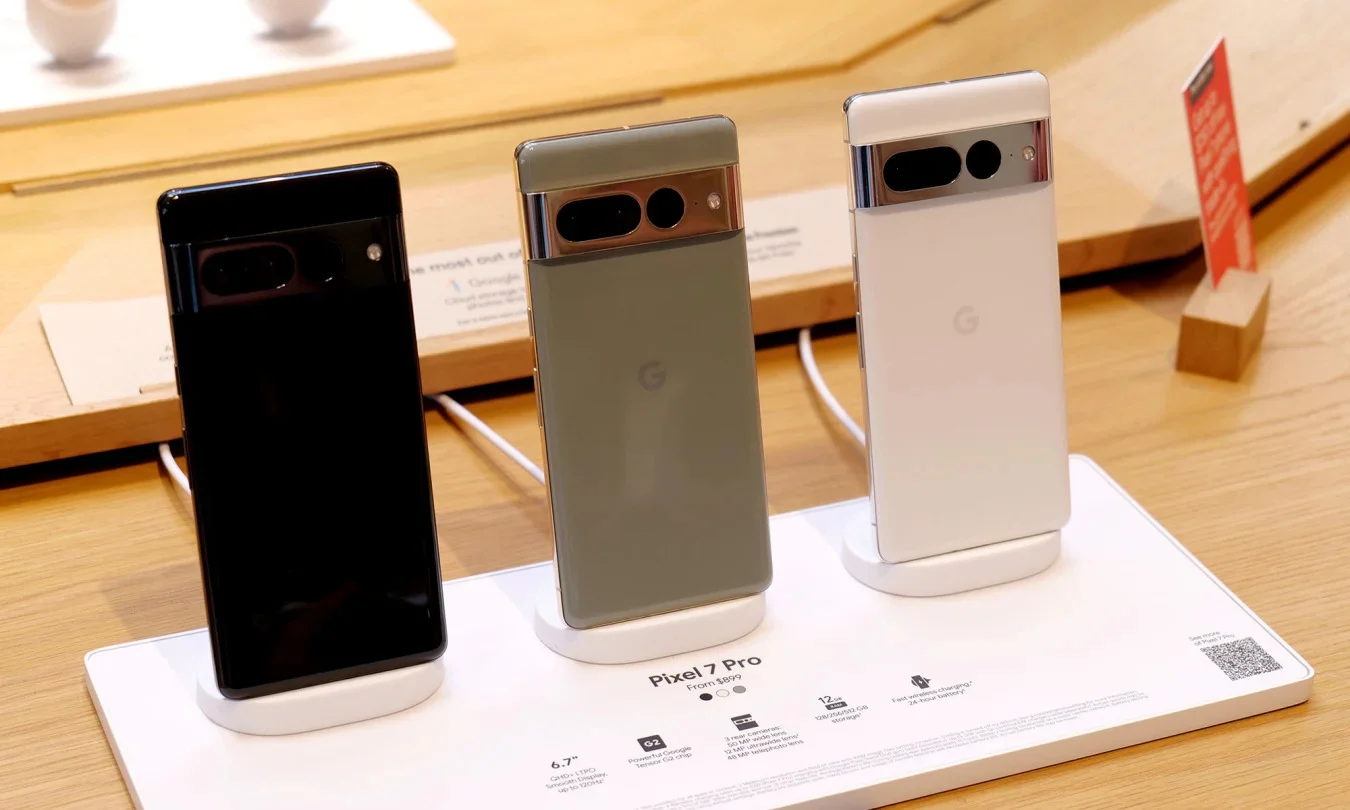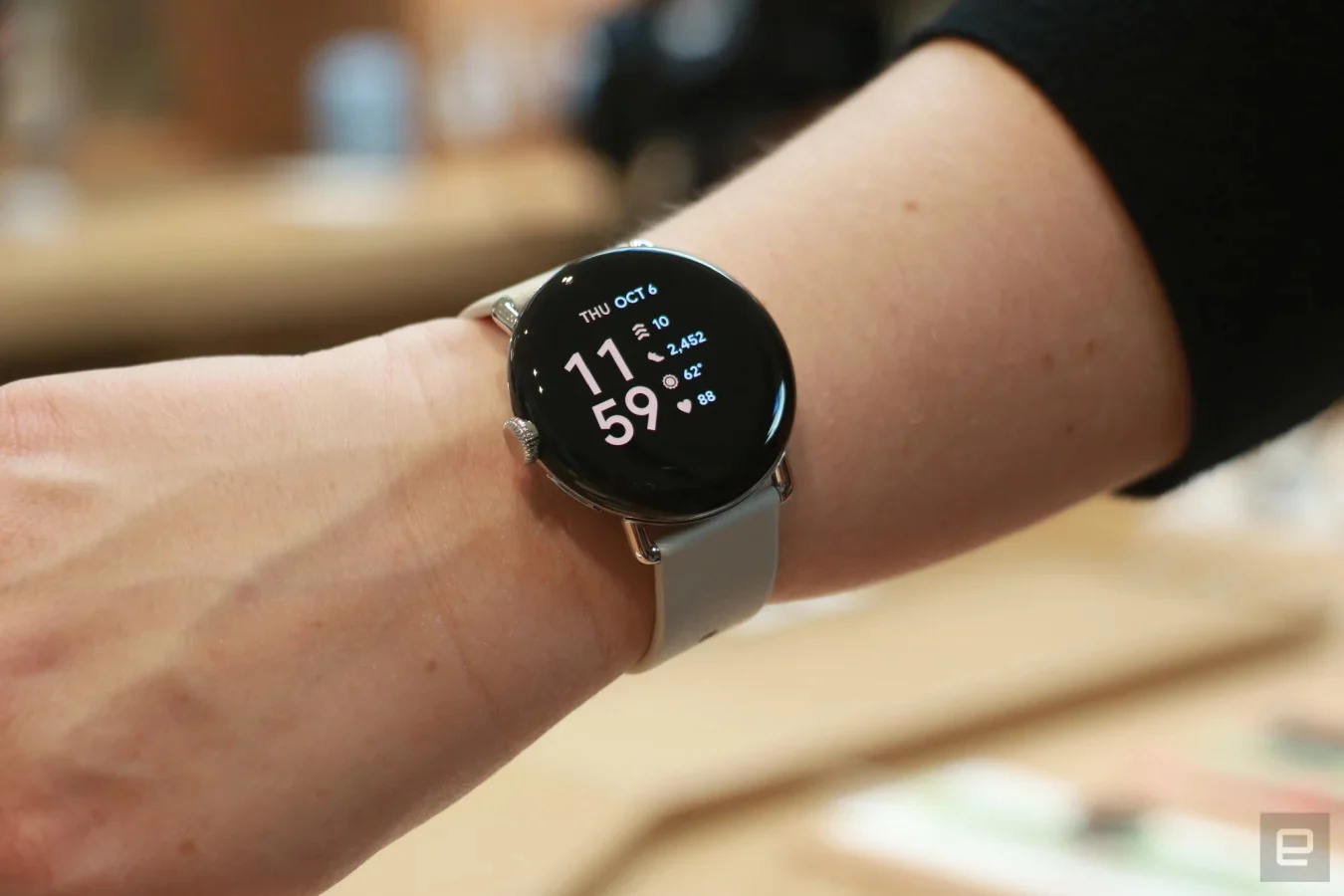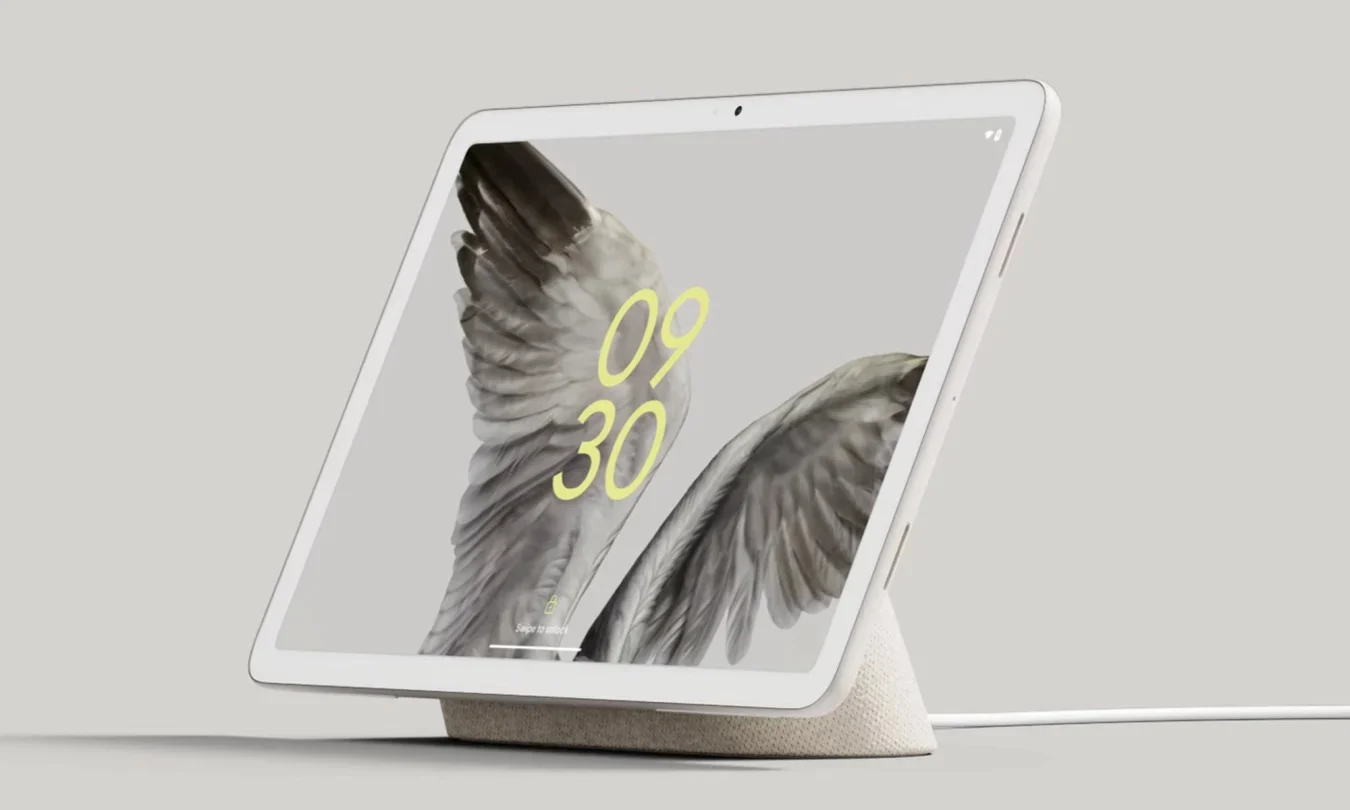There weren’t a lot of surprises in store at today’s Google event in Brooklyn — after all, the company started teasing its Pixel 7 and Pixel 7 Pro smartphones, the Pixel Watch and the Pixel Tablet months ago. Regardless, we now have all the details on Google’s latest hardware, all of which you can pre order now in advance of the October 14th launch date (with the exception of the Pixel Tablet, which Google still says will launch sometime in 2023). In the meantime, here’s what you need to know about these new phones and watch.
Pixel 7
Just like last year’s Pixel 6, the Pixel 7 is priced at $599, making it a phone that should give you a great bang for your buck. The display is just a tiny bit smaller than last year’s model, at 6.3 inches, but it has the same 1,080 x 2,400 resolution. Also like last year, there are two camera modules on the back: a 50-megapixel standard camera and a 12-megapixel ultrawide option. The front-facing camera got a nice upgrade, though — it’s a 12-megapixel shooter with bigger pixels and a wider field of view than last year’s model. It can also be used to unlock your phone, but there’s still an under-display fingerprint sensor if you prefer.
As expected, the new Tensor G2 chip is on board here, enabling a handful of notable features as well as improving overall performance. For example, the Pixel 7 has a new feature called Photo Unblur, which uses the chip’s AI smarts to do exactly what it says — make your blurry photos more legible. You can even do this to older photos in your Google Photos library, so you can touch up old memories that you might have shot on other phones or cameras. It also powers the Super Res Zoom features so you can shoot 2x photos that come in at a full 12.5-megapixel resolution, a trick that Google’s had around for a while now. But as usual, the results will probably be better this year than before.
From a design perspective, the Pixel 7 largely keeps the look from last year’s model, with the prominent camera bar on the back. It comes in three colors (snow, obsidian and lemongrass) and the aluminum body is made from 100 percent recycled material.
The Pixel 7 Pro

Sam Rutherford/Engadget
Of the two new phones, the Pixel 7 Pro is probably the more exciting thanks to its three-lens camera system on the back. Both the 12-megapixel ultrawide camera and the 48-megapixel telephoto camera have been upgraded; the telephoto camera has the same Quad Bayer PD technology as the main 50-megapixel sensor. What this means is that, combined with the aforementioned Tensor G2 chip, the Pixel 7 Pro’s Super Res Zoom capabilities should be significantly improved.
The camera itself has a 5x optical zoom compared to the main camera, and the high resolution sensors mean you can pull a 10x zoom picture here at 12.5-megapixels. Overall, Google says you can zoom in as far as 30x if you want — we’ll have to review this phone before we can say how good these shots look in reality, but it’ll be fun to see just how well this camera can perform in the wild. The ultrawide camera also has a new macro photography mode, thanks to the wider field of view and autofocus feature.
Video shooting has also been upgraded, as all the cameras on the Pixel 7 Pro (and the Pixel 7, for that matter) can shoot 4K video at 60 fps. There’s also a new Cinematic Blur feature that automatically blurs the background in videos to make your subject pop more, not unlike what you can do with photos in portrait mode.
As for the rest of the hardware, the Pixel 7 Pro sports the same 6.7-inch screen as the Pixel 6 Pro. Like last year, it supports variable refresh rates up to 120Hz, compared to the 90Hz the Pixel 7 tops out at. Naturally, it also has the same Tensor G2 chip as the Pixel 7; the Pro does come with 12GB of RAM, compared to the 8GB in the standard model. It comes standard with 128GB of storage, but you can step up to 256GB or 512GB if you’re going to shoot a ton of video or otherwise save a lot of content on it.
At long last, the Pixel Watch

Cherlynn Low / Engadget
The Pixel Watch has been rumored for years, and we finally know a lot more about it ahead of its launch next week. It comes in a single 41mm size case, but you can get it in three stainless steel finishes (silver, black and gold). As for other customization features, Google says it’ll launch with 20 different bands and 19 different watch faces. It has a Gorilla Glass 5 crystal on top, a haptic crown and a second side button, the same essential controls you’ll find on the Apple Watch.
Unsurprisingly, there’s a lot of Fitbit integration here for activity and health tracking. Notably, the Pixel Watch continuously tracks your heart rate every single second, and it also has an ECG app and can track your sleep quality overnight. GPS means it can track activities like running without your phone, and Google says there are a total of 40 different exercise modes you can use to log different workouts.
Google says the Pixel Watch will last up to 24 hours with its always-on display, and it can be fast-charged to 50 percent in only 30 minutes. The basic model costs $349, while the LTE-capable Pixel Watch costs $50 more. While the Pixel Watch is naturally designed with Pixel phone users in mind, it’ll work with any phone running Android 8.0 or higher. You’ll also get six free months of Fitbit Premium and three months of YouTube Music Premium.
A quick update on the Pixel Tablet

anus a very brief tease Earlier this year at I/O, Google gave us a little more detail on the upcoming Pixel Tablet. Unlike the other devices announced, the Pixel Tablet won’t arrive until sometime in 2023. Unsurprisingly, we know it’ll use the Tensor G2 chip found in Google’s latest smartphones, but we didn’t get any other spec details. We did, however, learn a bit about it’s design. Google’s vice president of product management Rose Yao told Engadget that the company developed a new “nano-ceramic coating” that she said is inspired by “the feel of porcelain” for the Pixel Tablet. She said it feels like the coating on a Le Creuset dutch oven, with tiny pieces of ceramic embedded in the tablet’s recycled aluminum frame Ultimately, this should make for a device that has a good grippy feel.
Another neat feature we saw for the first time is the Pixel Tablet’s docking station, which essentially turns the device into a Nest Hub. This magnetic stand holds and charges the Pixel Tablet and also provides it with improved speakers for a better audio experience, whether that’s listening to tunes or making video calls. Unsurprisingly, it also has a photo frame feature, again similar to the Nest Hub.
There’s no word on release date or pricing yet, so we’ll have to be patient; Hopefully we’ll hear more about the Pixel Tablet early in 2023. But it wouldn’t surprise me if we have to wait until May for the next I/O conference to get all the details on this device.
All products recommended by Engadget are selected by our editorial team, independent of our parent company. Some of our stories include affiliate links. If you buy something through one of these links, we may earn an affiliate commission. All prices are correct at the time of publishing.
